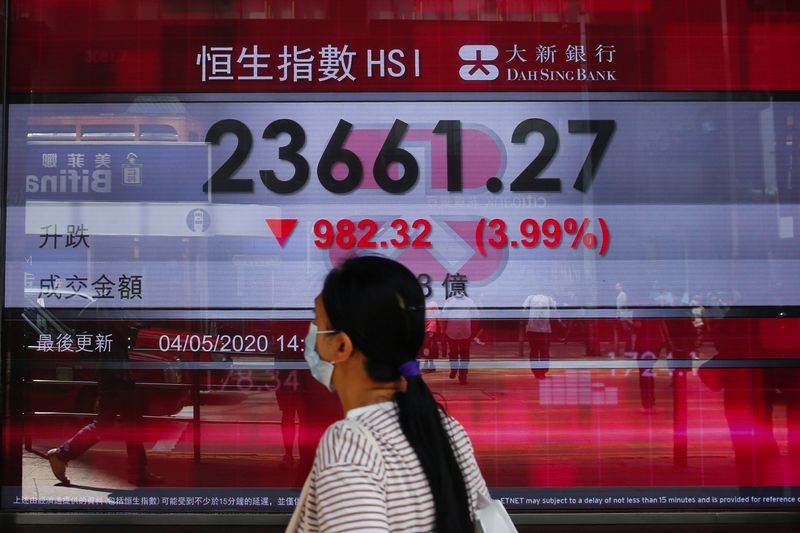By Jamie McGeever
(Reuters) - A look at the day ahead in Asian markets from Jamie McGeever, financial markets columnist.
Asian markets should get the week off to a blistering start on Monday, propelled higher by Wall Street's powerful rally on Friday that saw the Nasdaq rise more than 2% for its best day since May.
It is a big week for China watchers with a U.S.-Sino Presidential meeting, a raft of top-tier economic data and several blue chip corporate earnings releases all on the docket over the next five days.
Other economic and policy highlights across the continent this week include preliminary Japanese third-quarter GDP, Indian inflation, and a policy decision from the Philippine central bank on Thursday.
There is certainly room for upside potential for Asian markets after the MSCI Asia & Pacific equity index ex-Japan fell 0.5% last week, underperforming the broader MSCI Emerging Market index, which ended the week flat.
Financial conditions are broadly easing too, according to Goldman Sachs's financial conditions indices (FCI). Some, like the China and aggregate emerging market indexes, last week fell to their lowest in three months.
Perhaps the most interesting of all Goldman's FCIs is its Japanese index. On Friday it fell to 96.78, matching the lows struck on July 3 and 4. Remarkably, that is the lowest since March 1990.
By this measure, financial conditions in Japan are the loosest in almost 34 years - that's the combined effect of the yen's weakness, the stock market's recent 33-year highs, negative interest rates, and deeply negative real bond yields.
In theory, that is inflationary and should be boosting growth. Inflation is relatively sticky - the Bank of Japan is inching away from its ultra-loose policy - but economic activity is not meeting analysts' expectations.
Citi's economic surprises index for Japan turned negative last week and is now the lowest since June. On the Japanese corporate front this week, meanwhile, big firms reporting earnings include financials Mizuho, Mitsubishi UFJ (NYSE:MUFG) and Sumitomo.
The Chinese news flow this week is potentially huge.
On the political front, U.S. President Joe Biden and Chinese President Xi Jinping meet face to face this week at the Nov. 15-17 Asia-Pacific Economic Cooperation (APEC) gathering of leaders in San Francisco.
The economic data pipeline is full of top-tier releases too. They include money supply, lending and 'total social financing' - basically a broad measure of credit and liquidity in the economy - while on Wednesday markets will digest October's retail sales, industrial production and unemployment figures.
Some of China's biggest companies are scheduled to report their latest earnings this week. They include JD (NASDAQ:JD).com, Tencent Holdings (OTC:TCEHY), Alibaba (NYSE:BABA) Group and Lenovo.
Where do Chinese equities stand ahead of all that?
The blue chip CSI 300 index last week rose 0.066% - barely in positive territory, but enough to make it three weeks in a row of gains, its best run since March. That said, the index still failed in these three weeks to claw back the 4.1% losses from the week ending Oct. 20.
Here are key developments that could provide more direction to markets on Monday:
- India CPI inflation (October)

- APEC finance ministers meet in San Francisco
- Japan corporate goods prices (October)
(By Jamie McGeever; Editing by Diane Craft)